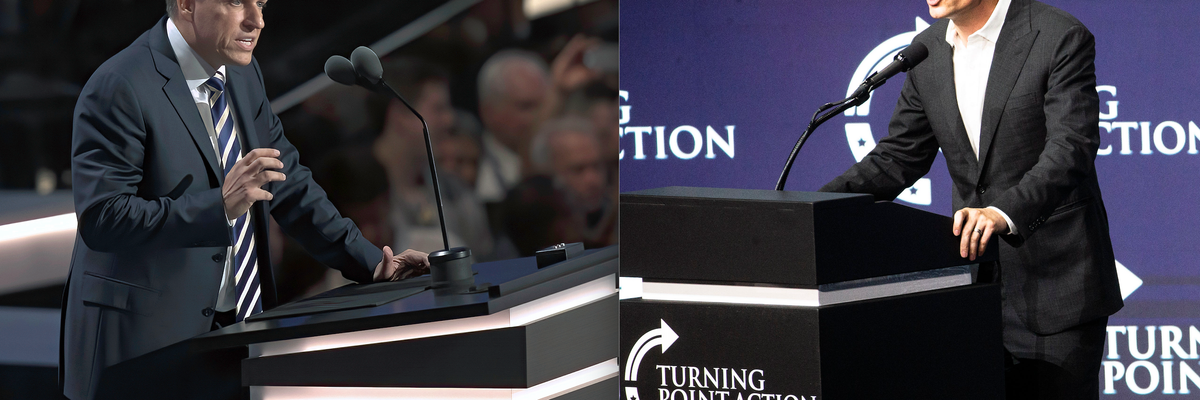Last month, billionaire Peter Thiel contributed $10 million to a super PAC supporting the Senate candidacy of his employee, Blake Masters, in Arizona. At the time, Masters, who serves as chief operating officer of Thiel Capital — Thiel’s investment firm — and president of the Thiel foundation, seemed to launch his Senate run with a number of policy prescriptions that would potentially steer federal funding to Thiel’s investments in border security technology and defense contractors who stand to profit from a militarized competition with China.
Since then, Masters, despite his populist rhetoric of pushing back against “corporations that have gotten so big, they think they’re bigger than America,” is doubling down on militarization of the border that closely tracks with his boss and top campaign supporter’s investments in surveillance technologies.
Masters, speaking at an event on August 3 at the Pima County Republican Club, describes “day one legislation to fix the [border] wall,” saying:
I think we need to double or triple the size of the Border Patrol. And I also think we need to arm those guys with the technology they need. Very often it's just like you know two guys with a pickup truck and — God bless them — they have a huge territory, and they just have like a radio and a sidearm or something like that. We should be using drones. We should be using, you know, infrared beams. We should be getting — we have the technology. We can get them pickup trucks with heads-up, night-vision displays, so they can actually do their job around the clock in a much safer way.
Anduril Technologies, in which Thiel is an early investor, signed its first federal government contracts with the border patrol to put up autonomous surveillance towers incorporating, among other technologies, infrared sensors. Anduril is also developing small drones and, at the company’s formation, outlined a vision for a high tech border wall using many of the technologies described by Masters.
Thiel also founded Palantir Technologies, a $20 billion data-analytics firm with ongoing contracts with Immigration and Customs Enforcement for technology that includes software used to support the Trump administration’s controversial detention, deportation, and family separation policies on the southern border.
While Masters’ campaign noticeably promotes federal spending on technologies that, coincidentally or not, are developed by companies linked to Thiel, Masters denied that his boss and campaign funder would have undue influence over him if he succeeds in unseating Democratic Arizona Senator Mark Kelly, in an interview with the New York Post.
In that same interview, Masters faced questions about whether his high tech border strategy would ultimately steer taxpayer money to Thiel’s companies.
“I’m familiar with those companies and bullish on them,” he told the New York Post in reference to Palantir and Anduril. “I’m open to whatever works.”
















